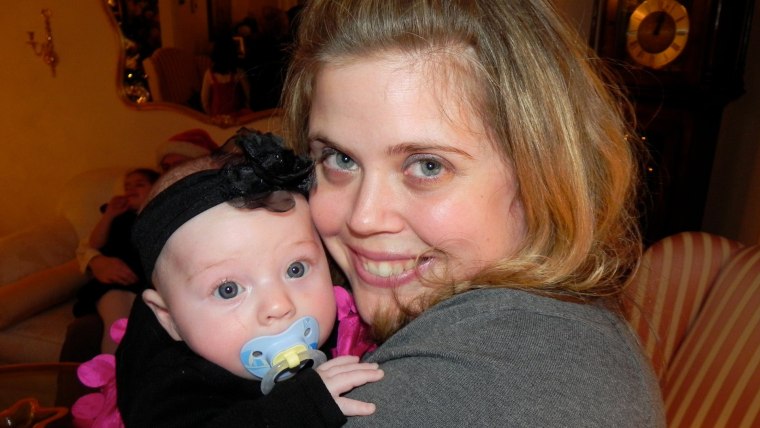From the way medicines are researched and tested, to the approach doctors take diagnosing and treating diseases, more and more research shows a bias against women in the health care system.
It could jeopardize their health, but now there's a push for change.
“This is the ‘MeToo’ of health care,” Dr. Noel Bairey Merz, director of the Barbara Streisand Women's Heart Center at Smidt Heart Institute, Cedars-Sinai, told NBC News special anchor Maria Shriver.
In a recent report, Bairey Merz found that though heart disease is the No. 1 killer of women and they are nearly twice as likely as men to die in the year following a heart attack, only 40 percent of women’s routine care includes a heart risk check.
Too often, doctors treat women at risk for heart disease very differently than men, Bairey Merz noted.
“Young women were more likely to be told to lose weight, where the young men who were actually more overweight were more likely to be put on effective preventive therapy,” she said. “People are always sort of judging women according to their weight."
And there's more: Though women are twice as likely to suffer from chronic pain as men, studies show women's reports of pain are more likely to be dismissed.
Laurie Edwards, an associate professor of English at Northeastern University, knows what that’s like. All her life, she has struggled to breathe. She suffers from a chronic but rare lung disease that was never properly diagnosed as she was growing up, with doctor after doctor telling her that her symptoms were all in her head — something many female patients endure.
“It's very easy to say, ‘Oh, you're just stressed out. You're just another anxious, young, type-A female student, take a deep breath. Maybe you need antidepressants. Maybe you need anxiety medicine,’” Edwards noted. She's written two books about her experience: "In The Kingdom of The Sick: A Social History of Chronic Illness in America" and "Life Disrupted: Getting Real About Chronic Illness in Your Twenties and Thirties."
It wasn't until she was in her 20s — and in the hospital with lung problems — that her disease was correctly diagnosed.
“I'm in a great place, but how much better would my long-term prognosis be if I had been doing all these things all the time?”Edwards said.

Gender biases exist in medical research, too. While clinical trials funded by the National Institutes of Health are now required to include female subjects, those funded by private medical companies are exempt. And in lab studies, mostly male animals have been used, meaning many drugs are never evaluated for women at all before coming to market.
Perhaps it's not surprising women are up to 75 percent more likely to have an adverse drug reaction than men.
“There are actually really important differences between men and women that go all the way down to the level of our cells,” said Dr. Janine Austin Clayton, director of the Office of Research on Women’s Health at the National Institutes of Health.
“Every single cell in our body has a sex, either XX or XY, female or male, that actually translates to different chemical reactions, and that can have important and in fact dramatic effects on how we respond to a treatment.”
There is some progress being made in addressing these issues. NIH is doing educational outreach to physicians and pharmacists about gender biases, and many medical journals now require researchers to include females in their studies.
While patients may think female doctors are more sensitive to this issue, studies show they have just as much bias as male doctors, so no matter who you see, it's important to ask the right questions.
What can women do?
Experts advised these tips:
• When prescribed medication, ask your doctors if the drug was ever studied in women and whether it has potential side effects for women. If they don't know, go somewhere else.
• If you're told to get a medical test, ask how accurate it is for women. Many common diagnostic tools were designed only around men.
• When it comes to assessing your body and health, listen to your gut. “My message to women is to be willing to look for a second or a third opinion, and to be willing to walk away from a partnership that isn't working,” Edwards said.

